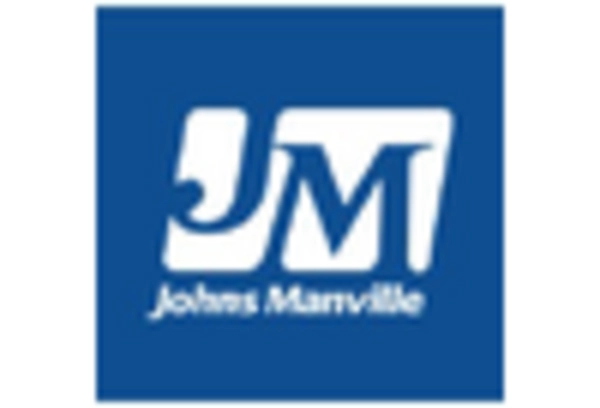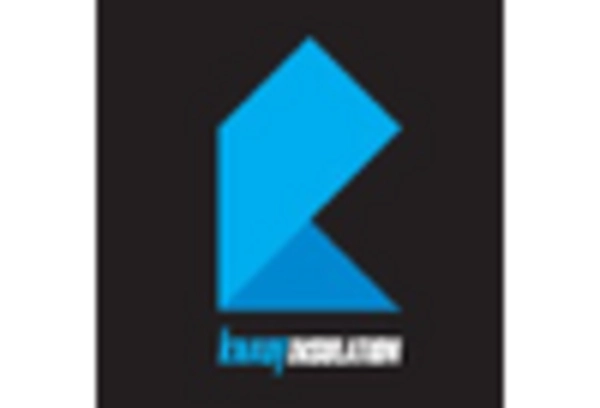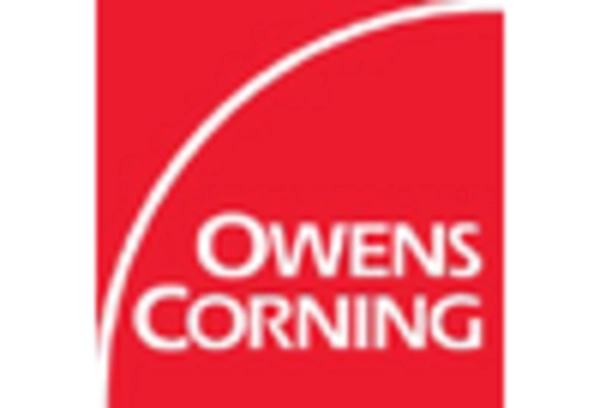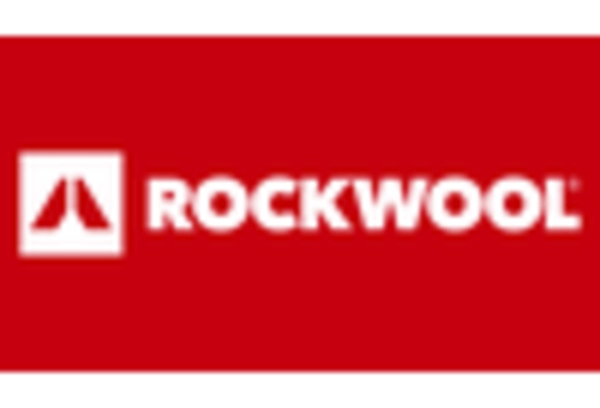The building insulation-material market in Japan is characterized by a competitive landscape that is increasingly shaped by innovation, sustainability, and strategic partnerships. Key players such as Owens Corning (US), Saint-Gobain (FR), and Rockwool International (DK) are actively pursuing strategies that emphasize product development and market expansion. Owens Corning (US) has focused on enhancing its product portfolio with advanced insulation solutions that cater to energy efficiency demands, while Saint-Gobain (FR) has been investing in sustainable materials to align with environmental regulations. Rockwool International (DK) appears to be leveraging its expertise in stone wool insulation to capture a larger market share, indicating a trend towards specialized product offerings that meet specific consumer needs.In terms of business tactics, companies are increasingly localizing manufacturing to reduce costs and improve supply chain efficiency. This approach is particularly relevant in a moderately fragmented market where regional players also compete for market share. The collective influence of these key players suggests a dynamic environment where innovation and operational efficiency are paramount for maintaining competitive advantage.
In October Owens Corning (US) announced a partnership with a leading Japanese construction firm to develop a new line of eco-friendly insulation products. This strategic move is likely to enhance Owens Corning's market presence in Japan, aligning with the growing demand for sustainable building materials. The collaboration not only signifies a commitment to environmental stewardship but also positions the company to capitalize on local market trends.
In September Saint-Gobain (FR) launched a new insulation product line that incorporates recycled materials, aiming to reduce carbon footprints in construction. This initiative reflects a broader industry trend towards sustainability and could potentially attract environmentally conscious consumers. By integrating recycled content, Saint-Gobain (FR) is not only enhancing its product offerings but also reinforcing its brand image as a leader in sustainable building solutions.
In August Rockwool International (DK) expanded its manufacturing capabilities in Japan by investing in a new facility dedicated to producing high-performance insulation products. This expansion is indicative of Rockwool's commitment to meeting the increasing demand for energy-efficient solutions in the region. The new facility is expected to enhance production capacity and reduce lead times, thereby improving customer satisfaction and market responsiveness.
As of November the competitive trends in the building insulation-material market are increasingly defined by digitalization, sustainability, and the integration of advanced technologies such as AI. Strategic alliances are becoming more prevalent, as companies seek to enhance their innovation capabilities and market reach. The shift from price-based competition to a focus on technological advancement and supply chain reliability is evident, suggesting that future competitive differentiation will hinge on the ability to innovate and respond to evolving consumer preferences.
















